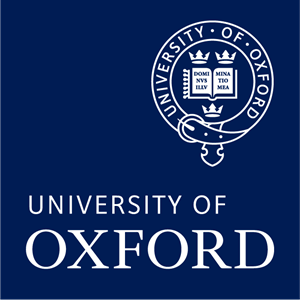University Rankings
Discover University of Oxford's global and national rankings
University of Oxford Rankings: Global and National Performance
The University of Oxford consistently ranks among the top universities in the world, leading in teaching quality, research impact, and international outlook.
Global University Rankings
- Oxford University QS Ranking 2026: #4 globally
- Times Higher Education (THE) 2026: #1 worldwide
- Academic Ranking of World Universities (ARWU) 2025: Top 6 globally
UK National Rankings
- Guardian University Guide 2026: #1 in the UK
- Value-Added Score: 6.3/10
- Career Success: 92/100 (graduates in professional roles within 6 months)
- Teaching Satisfaction: 94/100
- Complete University Guide 2026: #2 in the UK
- Graduate Prospects: 90%
- Student Satisfaction: 79%
- Research Quality: 87%
Sustainability and Other Notable Rankings
Oxford ranks highly in sustainability and innovation:
- In 2023, the University of Oxford received the Gold Rating from the Teaching Excellence Framework (TEF), reflecting its world-class standards in education.
- People & Planet University League 2023: University of Oxford ranked 37 with a score of 59.4%.
- Recognised for initiatives in green research, renewable energy, and sustainable campus development.
Research Excellence
In the UK Research Excellence Framework (REF) 2021, over 57% of Oxford’s research was rated world-leading, with strong outputs across medicine, humanities, and sciences.
- REF Highlights: Oxford leads in clinical medicine, philosophy, and engineering research impact.
Employability Rankings
- Graduate Employment Rate: 95% within 6 months (HESA data)
- Oxford graduates are among the most employable worldwide, consistently recruited by top firms and organisations.
- Strong alumni network across politics, business, healthcare, and technology.
Oxford also ranks highly in the National Student Survey (NSS) for student satisfaction, academic support, and learning opportunities.
What These Rankings Mean for You
Oxford University rankings reflect the university’s global prestige, academic excellence, and career-focused outcomes. Choosing Oxford means joining a university with unmatched research opportunities, international diversity, and graduate employability.
Key Strengths
- #1 globally in Times Higher Education Rankings
- High graduate employability (95% within 6 months)
- World-leading research quality and impact
- Exceptional international outlook and diversity
- Strong industry connections and alumni network
Still have questions about University of Oxford?
Our expert counselors are here to help you with any queries about studying at University of Oxford.
Contact Us

